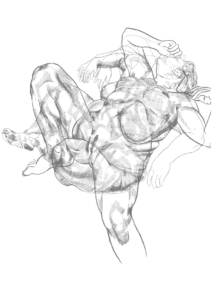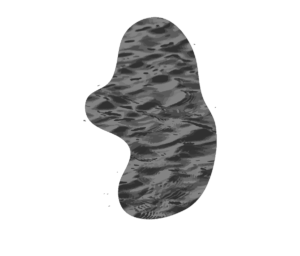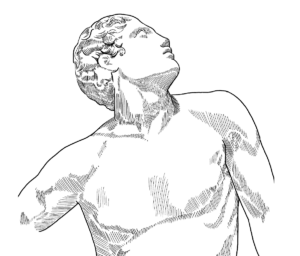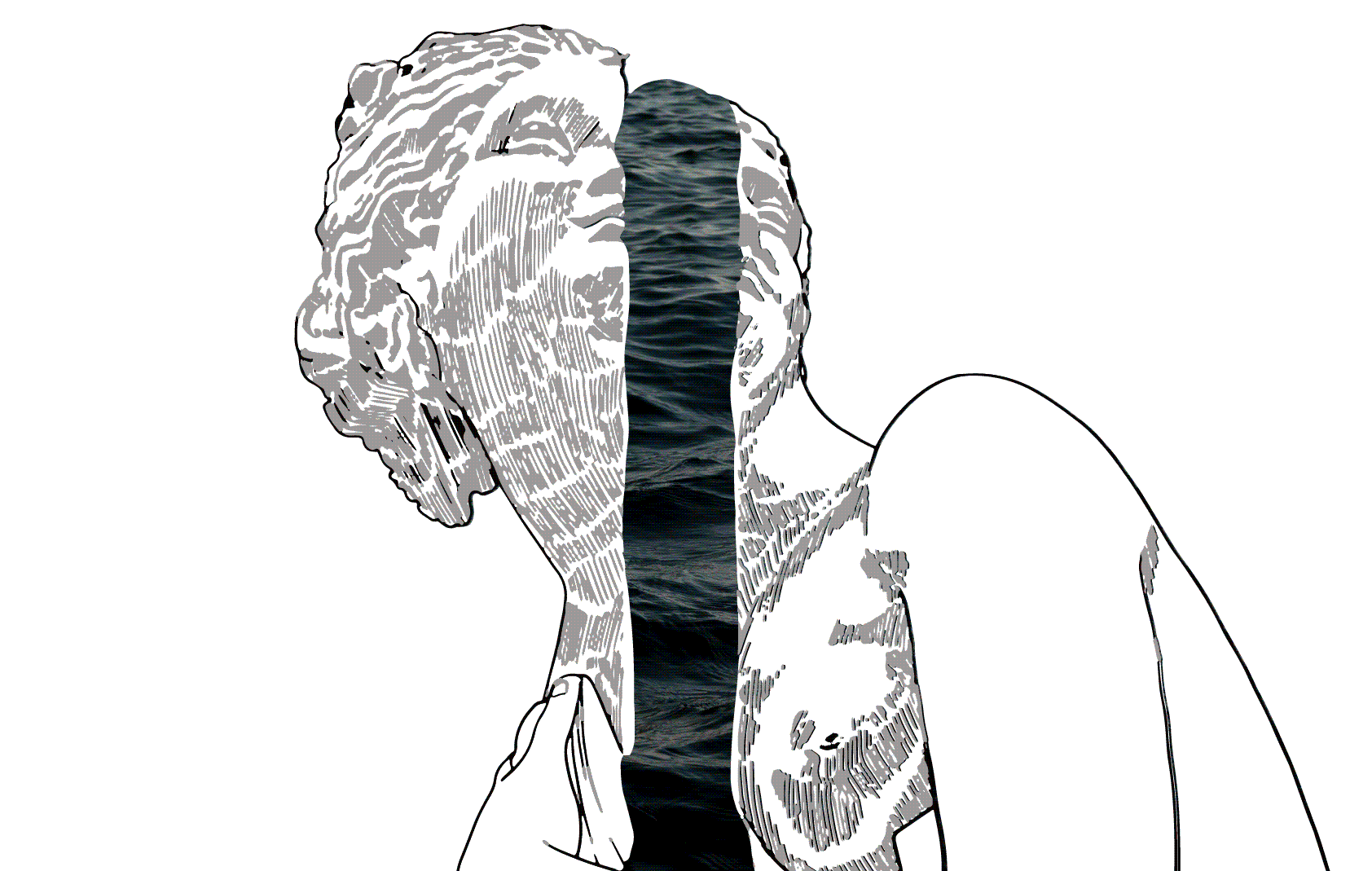Amongst the many experimental films screened at the XINEMA: Void of The Voice — VIFF’s ongoing series which showcases emerging and well-established experimental filmmakers within and around “Vancouver” — one stands out as uniquely poignant. Achingly intimate, all while being minimally expressive, is Alger Liang’s my pain is our song (2021), a documented performance that explores the body’s relationship to trauma and grief. my pain is our song notes the effort to re-engage with the bodily vessel’s discomforts, and its constant state of subjectivization. The work itself portrays the artist’s top-naked body in the foreground of a body of water, directly looking at the camera, turning around to dowse himself into the coldness of water before coming back up to the camera and repeating the act several times. This practice lends itself to the physical and mental effects of cold water immersion therapy, most commonly used by athletes to reduce muscle pains, boost cardiovascular circulation, and build a strong and healthy immune system. In confronting the achiness in his body, Alger is confronting the hidden scores of trauma in his own mind. The exposure to cold water grounds the body in its capacity to feel, to numb, yet ultimately, to persist. Sitting in a small theatre alongside Alger himself, I become a witness to one’s own account of their coping mechanism to trauma, all the while viscerally re-learning how innate empathy is — to the human body, and to the experience of being collectively human.

The performance is conducted while a series of vocal recordings are played in the background, all of them personal accounts from close friends, family members, and other concerned parties addressing the artist himself. The messages speak to Alger’s resiliency and tenderheartedness, and in so, unveils a personal narrative of care, compassion, and community during this period of the  artist’s life. The voices in the recordings are raw and empathetic, bearing auditory qualities reminiscent of voicemail messages replayed on the speaker of a telecom, while they recount memories shared between the artist and the speaker. Towards the end of the film, you can hear the artist’s own message to himself, loving and mournful, re-affirming the strengths of his character, offering a shared place of grief and solitude in his mother’s passing. These personal archives of sounds come together to inform the piece contextually, all the while signifying the intensity and complexity of grief as a multi-layered emotional response that operates its effects on the physical body. The title of the film, “my pain is our song”, suggests the collective capacity of experiencing an individual trauma – felt, repeated and performed by those who come to identify themselves among the words. An introspective page in a diary being published for the eyes of the public, “my pain is our song” masterfully creates a space in healing not only for the artist himself, but for a sympathetic audience that seeks to engage with the interconnectedness of raw empathy.
artist’s life. The voices in the recordings are raw and empathetic, bearing auditory qualities reminiscent of voicemail messages replayed on the speaker of a telecom, while they recount memories shared between the artist and the speaker. Towards the end of the film, you can hear the artist’s own message to himself, loving and mournful, re-affirming the strengths of his character, offering a shared place of grief and solitude in his mother’s passing. These personal archives of sounds come together to inform the piece contextually, all the while signifying the intensity and complexity of grief as a multi-layered emotional response that operates its effects on the physical body. The title of the film, “my pain is our song”, suggests the collective capacity of experiencing an individual trauma – felt, repeated and performed by those who come to identify themselves among the words. An introspective page in a diary being published for the eyes of the public, “my pain is our song” masterfully creates a space in healing not only for the artist himself, but for a sympathetic audience that seeks to engage with the interconnectedness of raw empathy.

XINEMA lends its space to the voices of experimental filmmakers — emerging and established — across “Vancouver” BC. Their programs on average span 100 minutes, relaying each artist’s visual take on a prompt which grounds itself in discussions with the prevailing forms and structures of everyday life. The screening was then followed by a small group discussion and an open interview with the participating artists at the event, in the confines of the VIFF Centre’s Studio Theatre. The program takes place on the traditional, ancestral and unceded territory of the Musqueam and the Tsleil-Wautuh Nations.


